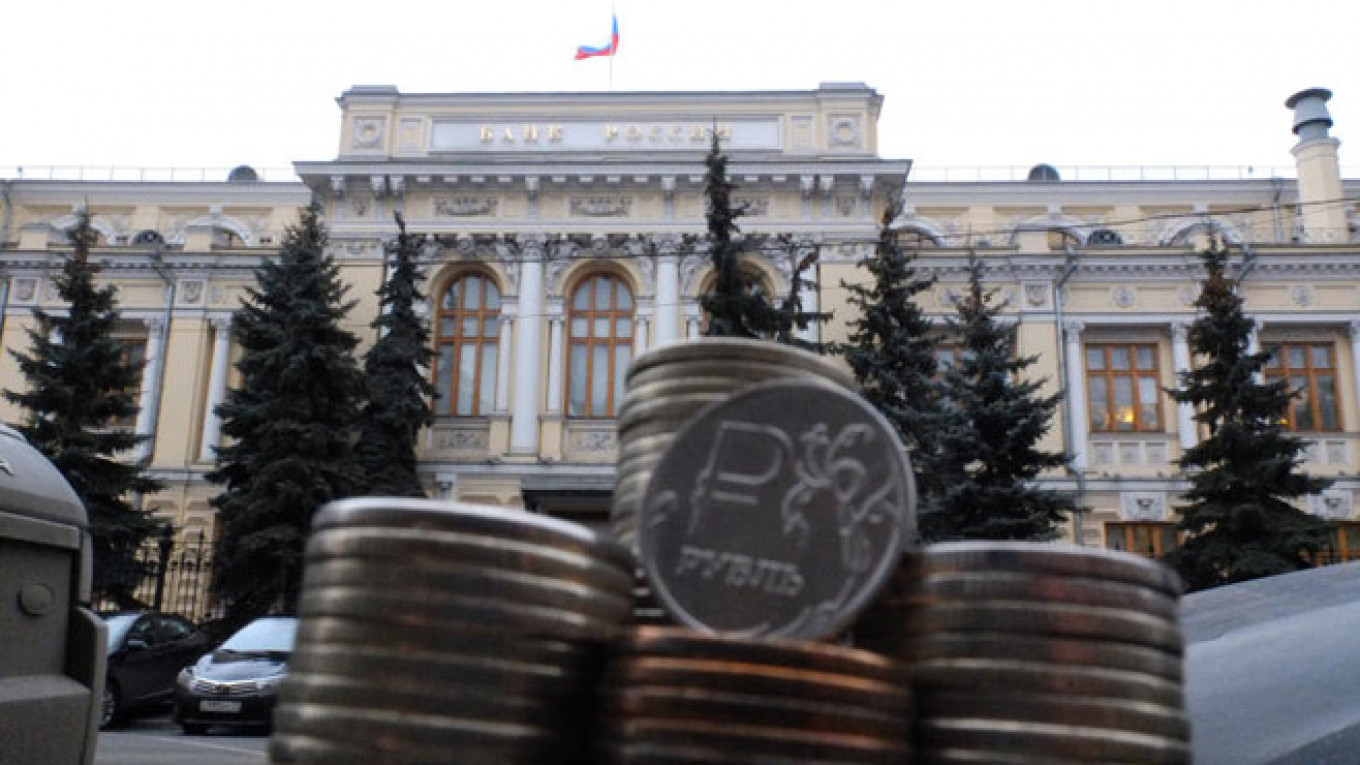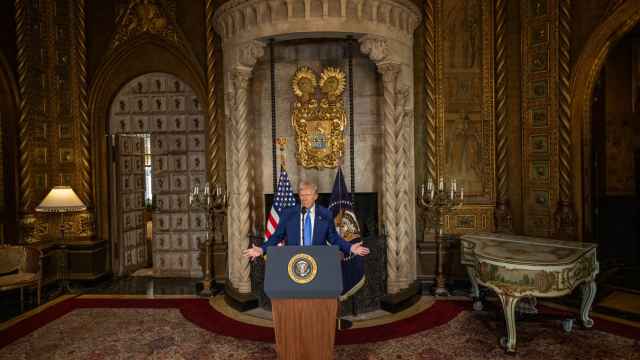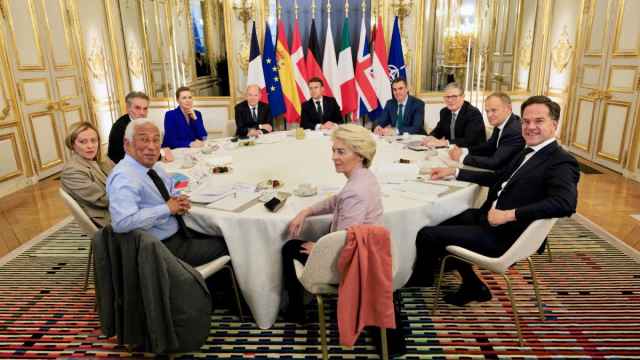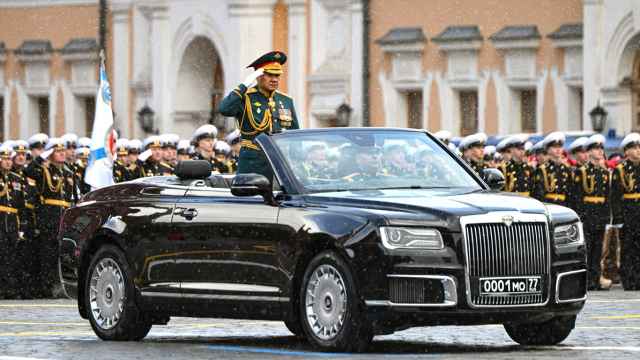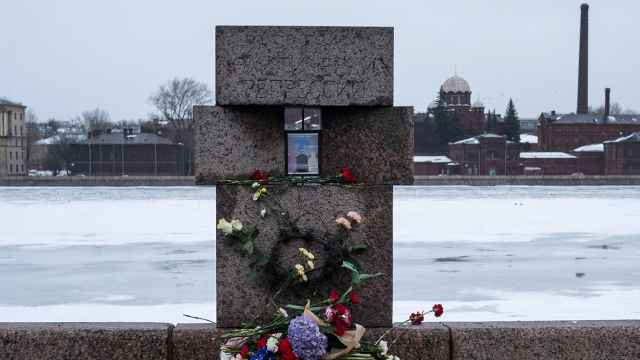The Russian economy finds itself in increasing trouble. The price of oil, Russia's most important export, has plummeted since last summer. The ruble has also plunged, its descent prompting the Central Bank to raise interest rates sharply in December 2014, although a subsequent rate cut reversed part of that move. Meanwhile, annual net private capital outflows have reached levels normally seen during times of crisis.
All this is taking place against the backdrop of a domestic economic downturn that dates back to the global recession of 2008-09. Since 2010, the pace of economic expansion in Russia has slowed each year. As a result, the Russian economy now appears to be stagnating at best, and heading toward crisis at worst.
The conflict in Ukraine, and the associated economic statecraft employed by both the West and Russia in response to it, offers a convenient explanation for Russia's recent economic woes. But the truth is that the Russian economy has been weakening for several years, and that the Ukraine situation has merely exacerbated pre-existing tendencies.
Since Putin came to power, high global oil prices and an expansion of domestic production caused an increase in state revenues that underpinned the strengthening of the Russian state after the chaos of the 1990s. This was done by increasing state control over the strategically important hydrocarbons sector.
The revenues from hydrocarbon exports were then funneled to a number of politically important beneficiaries. Defense spending increased after years of savage cuts. Social welfare spending rose dramatically, and the state bureaucracy ballooned in size. These constituencies grew to depend on rising state spending for their well-being.
This basic model worked for the best part of 15 years, and has proven both socially and politically efficient. Workers in Russia's ailing manufacturing industries stayed in work, while the growing cohort of pensioners saw their incomes rise.
However, this growth model neglected the more dynamic part of the Russian economy that had emerged from the ashes of the Soviet planned economy — the vibrant private sector inhabited by small and medium-sized enterprises (SMEs) operating in the nonstrategic sectors of the economy.
While the state transferred resources from the revenue-generating sector of the economy (hydrocarbons) to the revenue-dependent part (state bureaucracy, military, welfare), it singularly failed to improve the environment for private business.
Property rights remained conditional on close ties with the authorities. Access to finance was limited to those with political connections. And corruption was rife. By 2014, SMEs were estimated to account for no more than 30 percent of output and employment in Russia, a much smaller share than in the Russia's European neighbors, including former Eastern bloc countries.
By 2014, this model was exhausted. Growth in both oil price and the volume of production had come to a near standstill. This meant that spending on the revenue-dependent sectors slowed down as well. Along with Russia's shrinking labor force, all the ingredients for a sustained slowdown were in place.
Russia's economic frailty is thus overwhelmingly homegrown. Unfortunately, the model of revenue sharing has spawned powerful constituencies resistant to change. These constituencies eschew the competition and openness that is present in Russia's small but dynamic private sector.
The events of 2014 — the slump in oil prices and the conflict in Ukraine — have exposed this weakness. Western sanctions and Russian counter-sanctions have reduced trade and investment flows between Europe and Russia, while the dramatic fall in the price of oil — Russia's primary export and the source of around half of federal budget income — has triggered a precipitous depreciation of the ruble.
To reignite growth, reform is urgently needed to help boost the growth of the areas of the economy that are not owned or overly influenced by the state. To achieve this, the economy would benefit from strengthened property rights, renewed focus on competition policy, financial sector reform to broaden access to capital, and the easing of constraints on small and medium-sized enterprises' development.
In the past, low oil prices have presaged periods of economic reform. Former Soviet leader Mikhail Gorbachev's perestroika emerged after the fall in oil prices in 1986, while Putin's earlier, more liberal economic policies were carried out after oil dropped to close to $10 a barrel in 1999.
However, this time round, adversity is having the opposite effect on reform prospects, as statist factions in government use a threatening international environment to justify centralization and international isolation. The country's current economic problems have not prompted reform, but instead more state lending to favored sectors, more controls over the financial system and greater emphasis on import substitution. The conditions for private business are worsening as a result.
The conventional assessment of the likely effects of Western sanctions on Russia holds that sanctions should weaken the existing system of government and strengthen the cause of reformers currently outside the inner circle of power. However, what we are instead seeing is a "circling of the wagons" as the system of revenue sharing for key political and social constituencies is reconfigured to further entrench the current system of rule.
As a result, the prevailing system of political economy that is in such urgent need of transformation may in fact be preserved in a more ossified form.
While Russia may have "won" Crimea, and may even succeed in ensuring that Ukraine is not "won" by the West, the price of victory may be the deterioration of the long-term prospects for socioeconomic development.
Richard Connolly is an associate fellow at Chatham House's Russia and Eurasia program. This comment originally appeared on www.chathamhouse.org.
A Message from The Moscow Times:
Dear readers,
We are facing unprecedented challenges. Russia's Prosecutor General's Office has designated The Moscow Times as an "undesirable" organization, criminalizing our work and putting our staff at risk of prosecution. This follows our earlier unjust labeling as a "foreign agent."
These actions are direct attempts to silence independent journalism in Russia. The authorities claim our work "discredits the decisions of the Russian leadership." We see things differently: we strive to provide accurate, unbiased reporting on Russia.
We, the journalists of The Moscow Times, refuse to be silenced. But to continue our work, we need your help.
Your support, no matter how small, makes a world of difference. If you can, please support us monthly starting from just $2. It's quick to set up, and every contribution makes a significant impact.
By supporting The Moscow Times, you're defending open, independent journalism in the face of repression. Thank you for standing with us.
Remind me later.


